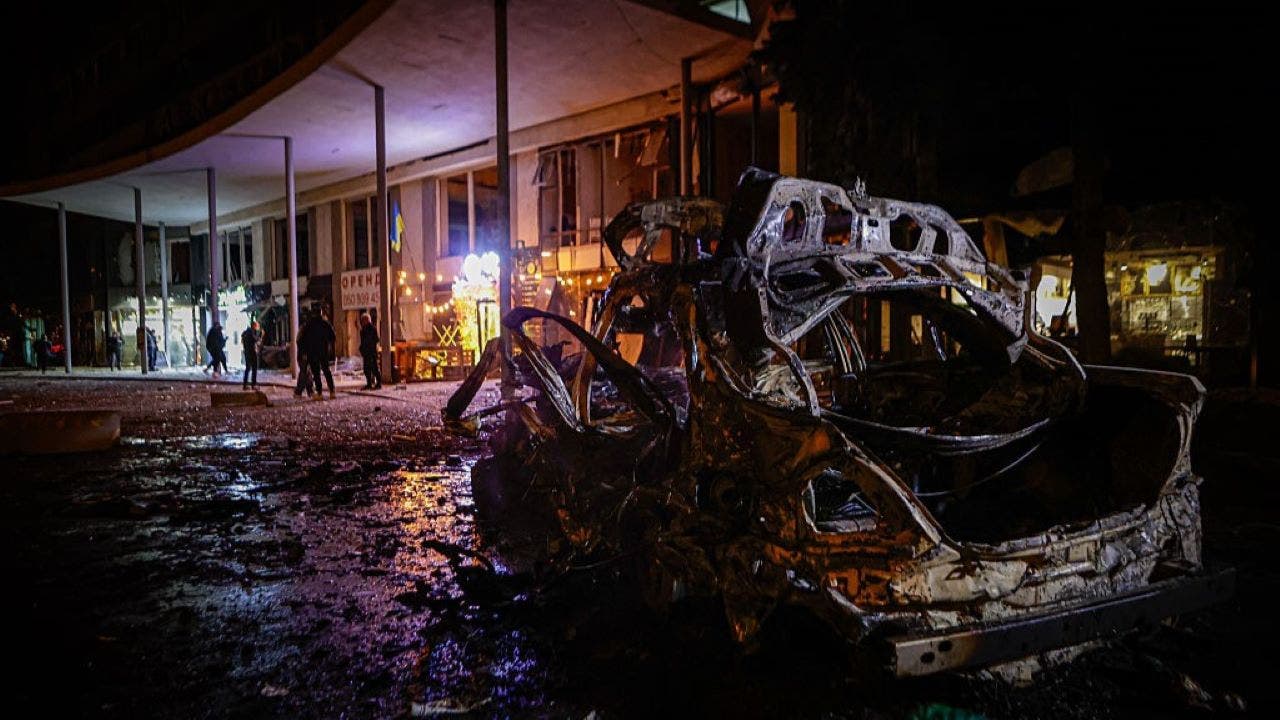Paramilitary fighters with Sudan’s Rapid Support Forces withdrew in large numbers from the battered capital of Khartoum on Wednesday, fleeing a city they had occupied since a ruinous war broke out nearly two years ago.
“Khartoum is now free,” declared Sudan’s military chief, Gen. Abdel Fattah al-Burhan, who arrived by helicopter for a brief visit to the battle-ravaged presidential palace, which his forces had seized days earlier.
Residents poured onto the street, cheering soldiers, in Burri, a neighborhood by the Nile “One army, one people,” they chanted. Soldiers combed through newly captured areas, hunting for paramilitary stragglers, some of whom were beaten.
The capture of the capital by Sudan’s military marked a momentous shift in Africa’s largest war, which has brought massacres, famine and sweeping destruction in its wake. But it is unlikely to end the war.
The Rapid Support Forces, or R.S.F., is likely to regroup in Darfur, its stronghold in Sudan’s far west, analysts said, where it has vowed to establish a parallel government and continue to prosecute the war.
Drone footage circulated by Sudan’s military in the morning showed hundreds of R.S.F. fighters fleeing across a dam on the Nile at Jebel Aulia, 25 miles south of the capital — their last remaining escape route. By afternoon, it was clear they had been routed.
The military announced it had captured a large R.S.F. base near the dam and was pursuing the remaining R.S.F. forces across the city.
“A few remnants remain in pockets here and there,” said Brig. Gen. Nabil Abdullah, a military spokesman. “They will soon be destroyed.”
The loss of Khartoum, one of the largest cities on the African continent, dealt a crushing blow to both the R.S.F. and to the ambitions of its foreign sponsors, in particular the United Arab Emirates, which has supplied it with powerful weapons since the start of the war.
General al-Burhan, who leads Sudan’s military, and Lt. Gen. Mohamed Hamdan, who leads the Rapid Support Forces were once allies, but went to war nearly two years ago over a dispute about a plan for the paramilitary troops to be absorbed by the military.
The fighting has killed an estimated 150,000 people and displaced more than 13 million, sending nearly four million fleeing to neighboring countries — amounting to the world’s largest displacement crisis. Refugees have told of fleeing rapes, massacres and starvation.
As the retreat unfolded across Khartoum on Wednesday, a city warped and destroyed by two years of war suddenly opened up.
At the Manshia Bridge, a strategic crossing in the city center, Sudanese soldiers strolled over the Blue Nile early Wednesday without a fight, said Walid Ahmed, 43, a soldier standing guard. “The battle for the palace finished them off,” he said. “They lost their morale.”
In a nearby residential area, residents whooped and cheered as they ran up to a group of soldiers. Several residents said they were deeply relieved that the paramilitaries had gone.
“Are you going to stay with us this time? Or will you leave again?” implored Eman Elbagir to one officer. “We’ve had enough of the abuses. We’ve had enough of the looting. We can’t even sleep at night.”
Another woman, Amira Elamin, said women suffered some of the worst abuses under the R.S.F., whose forces included mercenaries from Chad and Libya. “They took our daughters to the room,” she said, using a euphemism for sexual assault. “We were screaming and shouting. We said. ‘Don’t take our daughters! Take us instead!’”
But, she added, “It was no use.”
Both sides in Sudan’s war have been accused of atrocities, and there are fears that the capture of Khartoum could bring a fresh litany of abuses.
A few streets away, a soldier stood over two men, their hands bound, squirming in the dust. Soldiers said the two men were suspected of being R.S.F. sympathizers or troops.
One soldier kicked the men on the ground. Yard away, other soldiers fired their weapons as they tried to flush other suspects from a house.
Video footage verified by The New York Times appeared to show a fighter from Bara Ibn Malik, an Islamist militia that fights alongside the military, thrashing eight blindfolded men with a hose about 10 miles from the city center.
The sudden withdrawal by the R.S.F. comes five days after the army captured the presidential palace in central Khartoum, a key symbolic and strategic victory.
Since then, the army steadily seized control of the capital, fighting as it retreated. Times journalists heard explosions and gunfire as they walked through the deserted city center on Tuesday.
By Wednesday, the army had taken the city’s international airport, and continued to press south.
Now the last concentration of R.S.F. fighters in Khartoum appeared to be in the Omdurman, on the west bank of the Nile, which is divided between army and R.S.F. control.
After nightfall on Wednesday, a burst of artillery was heard across Omdurman. It was not immediately clear which side had fired.
Abdalrahman Altayeb and Sanjana Varghese contributed reporting.





